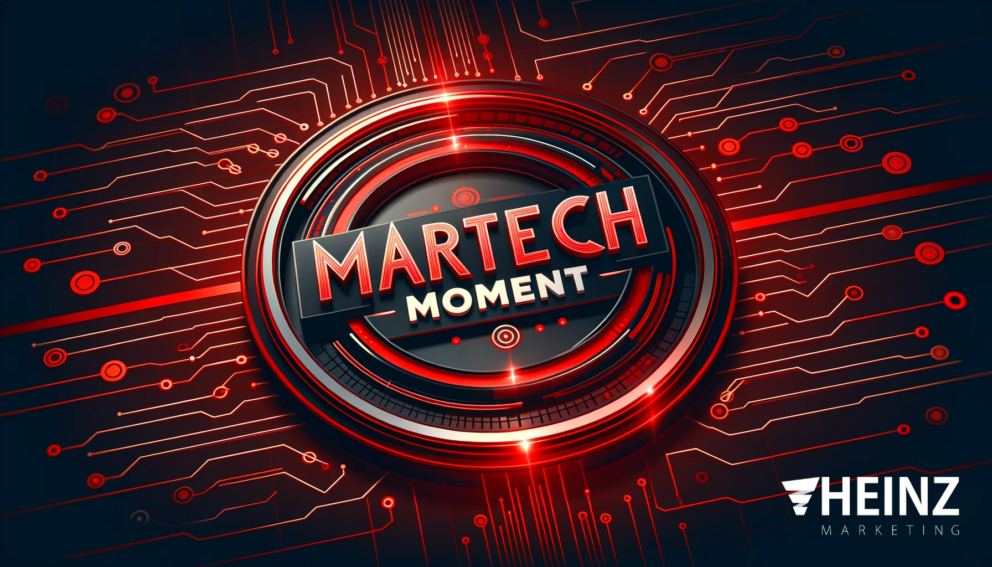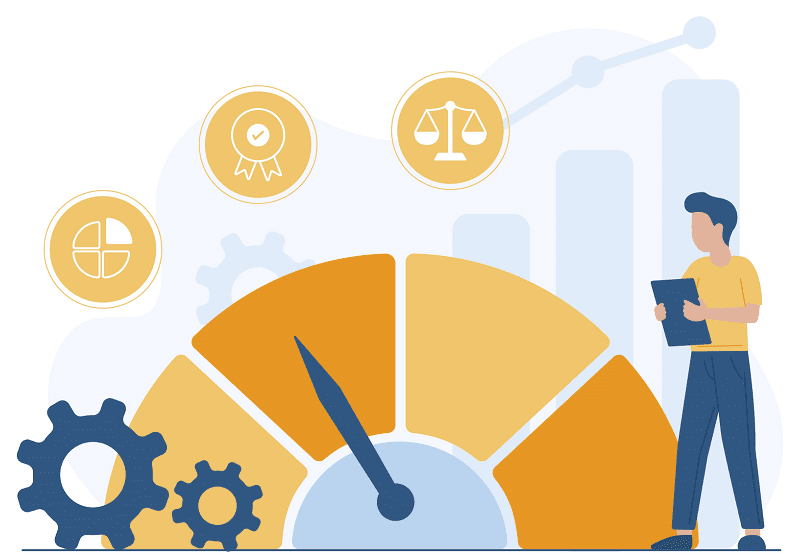When to Use AI or an Agency: Strategic Choices for B2B Companies

Summary
Businesses must adapt to stay competitive, with many choosing between leveraging AI technologies or partnering with specialized agencies. This decision depends on various factors, such as the nature of the task, budget, and long-term goals. While AI excels in handling routine, data-driven tasks efficiently, agencies offer creativity and strategic expertise for complex projects. In this blog post, understand the pros and cons of each option in different scenarios, along with best practices for implementation, to help your business make more informed decisions to optimize processes, enhance customer experiences, and drive growth.
By Carly Bauer, Marketing Consultant at Heinz Marketing
To succeed we must adapt to remain competitive. We all know this, yet some companies are faster or slower to adapt than others. As we work to adapt their strategies to the ever-changing market, one key decision that is becoming more common is whether to leverage AI technologies or partner with a specialized agency to achieve their goals. This decision hinges on various factors, including the nature of the task, budget constraints, and long-term strategic objectives. AI is being adopted by companies at an increasing rate to help optimize internal processes, create better customer experiences, identify new opportunities – the list can go on and on. But let’s not get too distracted by the shiny new toy everyone’s raving about. It’s important to remember everything has a time and place, including AI. It’s an extremely useful tool but isn’t the best fit for all situations. In this blog post we explore scenarios where AI or an agency might be the better choice, with best practices, pros and cons, and essential insights and examples to help guide your decision-making process.
Scenario 1: Routine vs. Complex Tasks
Routine Tasks: AI Implementation
AI excels in handling repetitive, data-driven tasks with precision and speed. For instance, AI-powered tools can automate email marketing campaigns, sales outreach cadences, social media scheduling, and data analysis, freeing up your team to focus on more strategic initiatives.
AI-Powered Tool Examples:
- HubSpot: For automated email marketing and customer relationship management (CRM).
- Hootsuite: For social media scheduling and analytics.
- Tableau: For data visualization and analysis.
- Drift: For AI-powered chatbots and conversational marketing.
- BrightEdge: For SEO and content performance optimization.
The Pros:
- Cost-effective in the long run
- Consistent performance without human error
- Scalable and can handle large volumes of data
The Cons:
- Initial setup and integration costs
- Limited creative capabilities
- Requires continuous monitoring and updates
A Plausible Example of Using AI in Data Analysis
A mid-sized B2B company struggled with analyzing vast amounts of customer data. By implementing an AI-powered data analytics tool like Tableau, they were able to derive actionable insights quickly, leading to a 30% increase in lead generation and a 25% boost in sales conversions within six months.
Complex Tasks: Agency Partnership
For tasks requiring creativity, strategic thinking, and specialized expertise, an agency can be invaluable. Developing a comprehensive brand strategy, executing a high-impact campaign, or navigating a rebranding effort often benefits from the diverse skill sets and experience an agency offers.
Different Types of Agencies:
- Marketing Agencies: Specialize in creating and executing marketing campaigns.
- Branding Agencies: Focus on brand development, identity, and positioning.
- SEO Agencies: Optimize content and website performance for search engines.
- Creative Agencies: Provide design, content creation, and multimedia services.
- PR Agencies: Manage public relations and corporate communications.
The Pros:
- Access to a wide range of expertise and creative talent
- Ability to manage complex projects with multiple moving parts
- External perspective can lead to innovative solutions
The Cons:
- Higher costs compared to AI tools
- Dependency on the agency for continuity
- Potential misalignment with internal vision and goals
A Plausible Example of Using an Agency for Brand Strategy
A growing B2B tech firm faced challenges in establishing a cohesive brand identity. Partnering with a specialized branding agency, they developed a comprehensive brand strategy that resonated with their target audience, resulting in a 40% increase in brand awareness and a 20% rise in market share over a year.
Scenario 2: Content Creation and Management
AI for Content Creation
For businesses looking to scale content production, AI tools can generate written content, curate articles, and even suggest topics based on trending data. Tools like Copy.ai and Jasper (formerly Jarvis) can create blog posts, social media content, and product descriptions quickly and efficiently. If you want help leveraging AI-driven personalization to boost customer engagement, check out this article.
The Pros:
- Fast content generation
- Data-driven topic suggestions
- Consistent tone and style
The Cons:
- May lack deep creativity and nuance
- Risk of producing generic content
- Requires human oversight to ensure quality
A Plausible Example of Using AI for Content Creation
A SaaS company needed to produce a high volume of blog posts and social media content to keep up with their content marketing strategy. By using Copy.ai, they were able to generate content quickly and maintain a consistent publishing schedule. This resulted in a 50% increase in website traffic and a 35% rise in lead generation within three months.
Agency for Content Strategy
When a business needs a comprehensive content strategy that aligns with its brand voice and marketing goals, a content marketing agency can provide tailored solutions. These agencies can conduct audience research, develop content calendars, and produce high-quality multimedia content.
The Pros:
- Customized content strategies
- High-quality, engaging content
- Expertise in various content formats (blogs, videos, infographics)
The Cons:
- Higher cost compared to AI tools
- Longer turnaround times
- Requires ongoing collaboration and feedback
A Plausible Example of Using an Agency for Content Strategy
A B2B manufacturing company sought to revamp their content strategy to better engage their target audience. They hired a content marketing agency to conduct a thorough audience analysis and create a detailed content calendar. The agency produced high-quality blog posts, infographics, and videos, leading to a 60% increase in user engagement and a 25% increase in sales inquiries over six months.
Scenario 3: Lead Generation and Nurturing
AI for Lead Generation
AI tools like Leadfeeder, ZoomInfo, and GetRev.ai can help identify potential leads by analyzing website traffic, social media interactions, and other digital footprints. AI can also automate lead nurturing through personalized email cadences and chatbots through tools like Salesforce and Pardot, HubSpot, Apollo.io, Reply.io, and Clay.
The Pros:
- Efficient lead identification
- Personalized, automated follow-ups
- Scalable lead generation processes
The Cons:
- Initial setup and data integration required
- May lack the personal touch of human interactions
- Continuous monitoring needed to refine algorithms
A Plausible Example of Using AI for Lead Generation
A financial services firm wanted to improve their lead generation efforts. By implementing Leadfeeder, they were able to identify and track potential leads visiting their website. The AI tool provided valuable insights that allowed the sales team to personalize their outreach efforts, resulting in a 40% increase in qualified leads and a 30% increase in sales conversions over four months.
Agency for Lead Generation
Agencies specializing in lead generation can offer targeted campaigns, account-based marketing (ABM), and hands-on nurturing to convert leads into customers. These agencies bring a mix of strategic planning, creative execution, and sales expertise.
The Pros:
- Tailored lead generation strategies
- Expertise in ABM and multi-channel campaigns
- Hands-on approach to nurturing leads
The Cons:
- Higher costs compared to AI solutions
- Dependency on agency for lead generation success
- Potential delays in campaign execution
A Plausible Example of Using an Agency for Lead Generation
A B2B software company needed a more effective lead generation strategy to target enterprise clients. They partnered with a lead generation agency that specialized in account-based marketing. The agency developed targeted campaigns and personalized nurturing tactics, resulting in a 50% increase in high-quality leads and a 20% increase in enterprise client acquisitions within six months.
Best Practices for Leveraging AI and Agencies
Best Practices for AI Implementation
- Start Small: Begin with pilot projects to understand the capabilities and limitations of AI within your specific context.
- Integration: Ensure AI tools integrate seamlessly with your existing systems for maximum efficiency.
- Training: Invest in training for your team to manage and leverage AI tools effectively.
- Continuous Improvement: Regularly update AI algorithms and tools to keep pace with technological advancements.
Here’s some additional insights on how to overcome pain points around AI.
Best Practices for Agency Collaboration
- Clear Communication: Establish clear goals, expectations, and timelines from the outset.
- Collaborative Approach: Treat the agency as an extension of your team, fostering a collaborative environment.
- Performance Metrics: Define and monitor key performance indicators (KPIs) to measure the success of agency-driven initiatives.
- Feedback Loop: Maintain an open feedback loop to ensure continuous alignment and improvement.
Key Insights for Decision-Making
- Budget Considerations: Evaluate the long-term costs and benefits of AI vs. agency partners. While AI may require significant upfront investment, agencies often have higher ongoing costs.
- Scalability Needs: Assess your company’s scalability requirements. AI can easily scale with your business, whereas agency resources might need to be augmented or replaced as you grow.
- Internal Capabilities: Consider your team’s existing skills and capabilities. Investing in AI might require upskilling your workforce, while an agency can provide immediate expertise.
- Strategic Alignment: Ensure that the chosen solution aligns with your overall business strategy and goals. AI tools and agencies should complement and enhance your strategic vision.
Conclusion: Making the Right Choice
Choosing between AI and an agency is not a one-size-fits-all decision. It requires a careful analysis of your business needs, goals, and resources. By understanding the strengths and limitations of each option, you can make informed decisions that drive your company forward. Whether you opt for the precision and efficiency of AI or the creativity and expertise of an agency, the key is to integrate these resources strategically to achieve your desired outcomes.
In the dynamic world of B2B marketing, staying ahead requires continuous innovation and strategic resource allocation. As you navigate this journey, remember that the right mix of technology and human expertise can propel your business to new heights.
Want to learn more about working with an agency? Request a free brainstorm call here.
Image by freepik on Freepik







